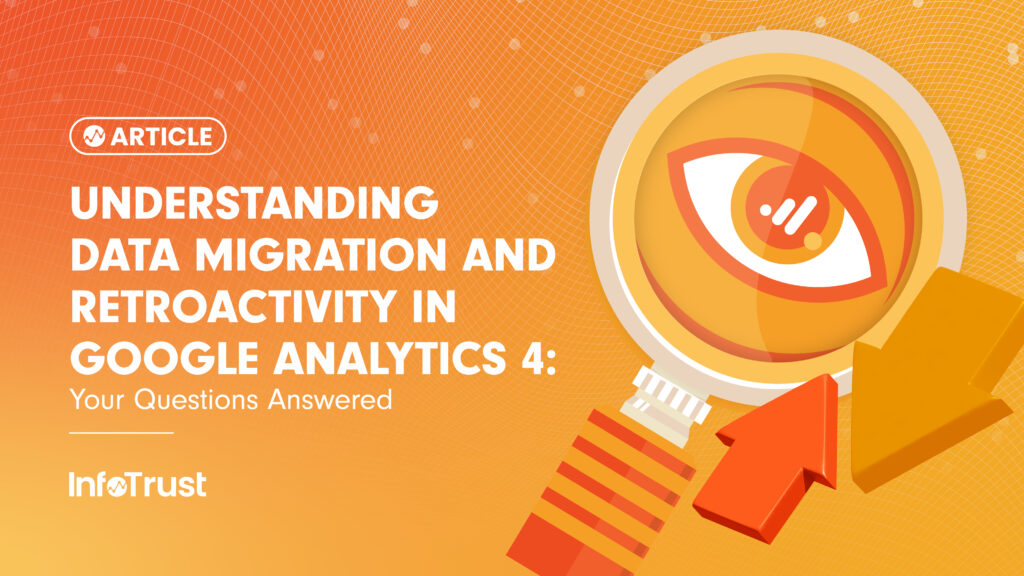As we navigate the transition from Universal Analytics (UA) to Google Analytics 4 (GA4), questions about data migration, retroactivity, annotations, filters, and audience segments are at the forefront. This blog post aims to answer these questions and provide clarity on what the shift to GA4 means for your data.
Will These Metric Adjustments Be Retroactive or Just Moving Forward?
In GA4, data will be impacted moving forward. This means that the changes you make in GA4 will not retroactively adjust your past data. The adjustments will apply to data collected from the point of change onward.
Will Annotations & Filters Carry Over from UA to GA4?
Unfortunately, annotations and filters from Universal Analytics do not automatically carry over to Google Analytics 4. Since GA4 operates on a different data model and structure, you will need to recreate these manually within the GA4 interface.
However, keep in mind that GA4 uses different filtering and data manipulation methods. Thus, when recreating filters from UA, some adjustments may be necessary. As for annotations, they can be added manually to GA4 reports as needed.
Will Audience Segments Migrate to GA4?
Audiences created in UA will not be automatically migrated to GA4. This is due to the differences in the data models between GA4 and UA and the new way of defining and creating audiences in GA4.
In GA4, audiences are created based on events and user properties, which allows for more flexibility and granularity in defining your target users. This shift enables more precise targeting and personalization of your marketing efforts.
To recreate your UA audiences in GA4, you will need to set up new audiences manually using the GA4 interface. This process involves identifying the equivalent events and user properties in GA4 that correspond to the dimensions and metrics used in your UA audiences.
It’s also important to note that historical data from UA will not be available in GA4. Therefore, you may want to view UA and GA4 data in parallel for some time to compare audience data and ensure that your new GA4 audiences are set up correctly. As you become more familiar with GA4’s audience capabilities and data model, you can refine and optimize your audiences to better align with your marketing goals.
The transition to GA4 presents an excellent opportunity to revisit your data strategy and make refinements where necessary. While the migration process might seem daunting, with careful planning and understanding, you can leverage GA4’s powerful features to drive more insightful and action-oriented analytics.



